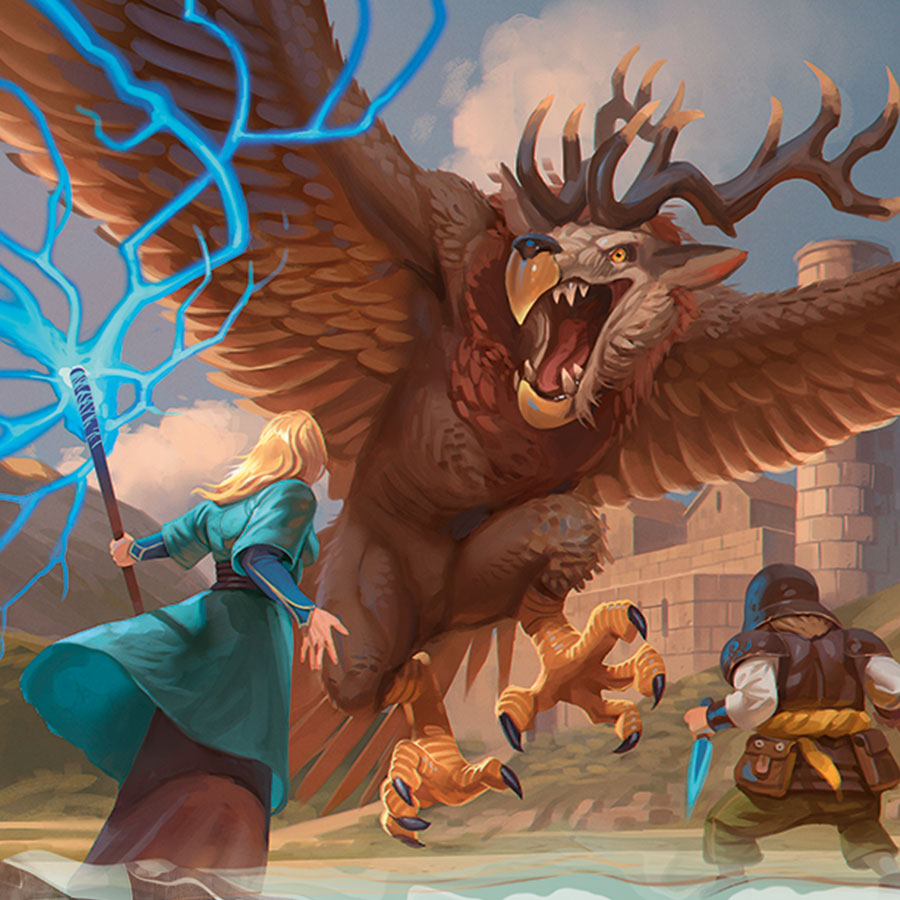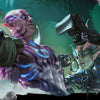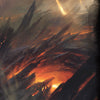10 Steps to Prep Your Very First D&D Game

Written by Luke Hart
You did it. You agreed to run D&D for your friends. You are now the dungeon master, and you have no idea what to do next. Sucks to be you!
Just kidding! I love new dungeon masters, and today we’re going to hook you up. I’ll be going over 10 steps to prepare for your first D&D game. Honestly, most of these steps are things I still do, even as an experienced dungeon master.
Now, these steps are NOT in any particular order. Many of them overlap and happen simultaneously, so don’t feel like you have to do everything in a rigid sequence.
By the way, are you a NEW GAME MASTER feeling a bit overwhelmed by everything involved with running a role-playing game? If so, the Secret Art of Game Mastery can help. Get over 100 years of GM experience distilled into practical, easy-to-read advice.
Watch or listen to this article by clicking the video below.
1. Prep the Location
Where is your game taking place? The Forgotten Realms? Eberron? A homebrew world you’ve been dreaming up? Whatever it is, you should know something about where the first adventure takes place.
The key here is just enough detail. You don’t need to study the entire campaign setting or flesh out your entire world. Instead, focus on:
- The town or city where the characters start.
- A bit about the surrounding region.
- The dungeon or adventure site they’ll explore first.
Having this information in your head will not only help the game run smoother but also help you set the tone and feel of the world as you guide your players through it.
2. Prep the Adventure
Whether you’re running an adventure module—like Into the Fey (which I highly recommend)—or creating your own adventure, you need to have it ready to run.
Know the background and central conflict of the adventure. Understand what the villain wants and the problem they are causing in the local area. Prepare a plot hook to get your players invested and ensure you understand the dungeon or location they’ll explore, including its monsters, traps, and challenges.
If you're running a published module, you don’t need to read the entire book—just the first chapter or two. Adventure modules typically provide a summary at the beginning that gives you the big picture. Focus on that, start running your game, and then gradually read more of the module as you go. You’ll retain information better, and you won’t waste time studying content you may never use.
3. Prep the NPCs
As the DM, you’ll roleplay all the NPCs in the game world. Isn’t that fun?
While you should know basic details like an NPC’s appearance, location, and occupation, what truly matters is their motivations and goals. A blacksmith with dark hair and a rough voice is one thing, but knowing that he’s had bad experiences with arrogant adventurers and just wants to provide for his family? That helps you roleplay him in a meaningful way.
A word of caution: Don’t over-prepare NPCs. You don’t need backstories for every shopkeeper or bartender. Prepare only the key NPCs and keep their details brief. If players latch onto an NPC and they become important, then you can flesh them out further.
4. Prep the Encounters
Every encounter typically consists of three elements:
- A place – The setting where the encounter happens.
- Some NPCs or monsters – The opposing force in the encounter.
- A dramatic question – What problem must the players solve?
For example, if the players enter a dungeon room with three goblins standing guard, the dramatic question could be: How do the players get past the goblins? They could sneak by, deceive them, or fight.
Likewise, an encounter doesn’t always have to involve combat. A trapped hallway presents the question: How do we get past without being sliced into pieces? Writing down these dramatic questions for your encounters adds depth and helps you anticipate different solutions your players might come up with.
5. Prep the Monsters
Monsters aren’t just stat blocks. Consider two things when preparing them:
- What will they do when the players arrive? Monsters don’t always attack on sight. Maybe they’re guarding something or could be bribed or negotiated with.
- How will they fight? Plan basic tactics. Do melee fighters rush forward? Do spellcasters stay back? If you think about this in advance, combat will feel more dynamic and strategic.
Most published adventures don’t give you these details—you’ll typically just see a list of monsters in a room. That’s why I highly recommend The Monsters Know What They’re Doing by Keith Ammann, which breaks down monster tactics in depth.
6. Prep Your Players
It doesn’t help if you’re 100% prepared, but your players have no clue what’s going on.
Do these three things before the game starts:
- Pitch the campaign premise – Give your players a general idea of what kind of adventure they’re signing up for.
- Help them create their characters – Some players will need assistance understanding the rules.
- Set expectations – Go over social etiquette, table behavior, and any house rules.
Traditionally, these topics are covered in Session Zero, and I have a whole video on that if you need more guidance.
7. Prep the PCs
You’re not building the player characters, but you should understand what they can do.
Take a moment to familiarize yourself with their special abilities, spells, and mechanics. You don’t need to memorize them, but knowing the basics will prevent game slowdown when they use their abilities.
If you’re feeling overwhelmed, skip this step at first. Players are responsible for knowing their characters. However, keeping an eye on things helps prevent misunderstandings or unintentional rule-breaking.
8. Prep Your DM Tools
Have everything you need ready to go:
- Books – PHB, DMG, Monster Manual, and any adventure module.
- Dice, pencils, paper – The essentials.
- DM screen – If you use one, make sure it has useful references.
- Random names list – Players WILL ask NPCs for their names. Be prepared.
- Miniatures or virtual tokens – If you use them, have them ready.
- Bookmarks & sticky notes – Mark rules or monster pages you’ll reference frequently.
If you’re using a Virtual Tabletop (VTT) like Roll20, make sure you test the platform beforehand so you don’t waste game time troubleshooting tech issues.
9. Prep the Session
Even though you’ve prepared the adventure, you still need to plan the actual session.
Jot down:
- Key events – The important moments likely to happen.
- Likely player actions – How they might engage with the story.
- Encounters or challenges – The main obstacles they’ll face.
Remember, you don’t control the players. They might go off track, and that’s fine! But having a rough plan will help you adapt to their choices while keeping the game moving forward.
10. Panic and Send a Group Text to Cancel the Game
Okay, don’t actually do this.
If you’re feeling overwhelmed, reach out for help. Join my Discord server, where thousands of game masters are happy to answer questions. Or swing by one of my Q&A live streams, where I help troubleshoot common DM problems.
You’ve got this. Now go run an awesome game!
100 Years of GM Experience at Your Fingertips!
Are you a NEW GAME MASTER feeling a bit overwhelmed by everything involved with running a role-playing game? Are you a VETERAN GAME MASTER looking for new tips and tricks to take your games to the next level? Look no further than the Secret Art of Game Mastery.
We at the DM Lair have distilled our CENTURY of accumulated GM experience into an easy-to-read guide of practical advice that you can immediately apply to your games! We've even included our own templates–the things that we use to prepare our ACTUAL games.
Get all three books to master your game:
- The Secret Art of Game Mastery. Contains over 100 years of GM advice distilled into an easy-to-read format. It introduces and explains the tools of the trade, scheduling, playstyle, post-game notes, getting player feedback, and more.
- The Secret Art of Preparation. Brings to your fingertips the actual templates and guides that the DM Lair team uses to prepare games, Lair Magazine, and more. Designed as a three-ring binder, it's intended for you to write directly into for your entire campaign!
- The Secret Art of Notetaking. Gives you the keys to tracking your campaign from session to session just like the DM Lair team. Designed as a three-ring binder, it's intended for you to write in and keep track of your whole campaign!
With so much knowledge and experience on its pages, The Secret Art of Game Mastery is guaranteed to become an indispensable tool for all game masters, new and veteran alike. And if that isn’t enough, the information applies to all game systems and all genres!
-
Posted in
Game Master How-To Articles







